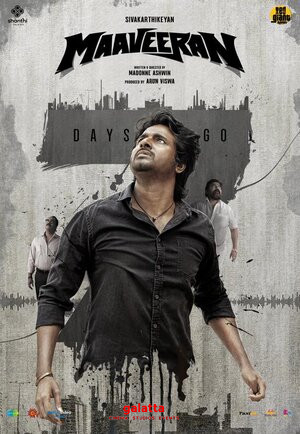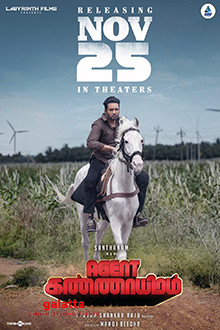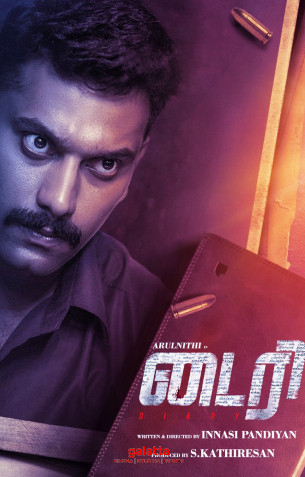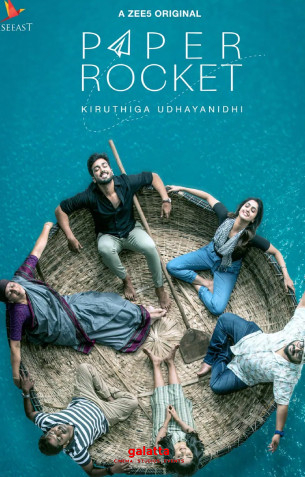Aachar &Amp; Co Movie Cast & Crew
Human beings are like fruit, the narrator says. We may think we have free will, but ultimately – like mangoes – we have no control whether we are going to end up as spicy pickle or sticky-sweet jam. It's all up to fate – or, as someone in a 1960s/70s movie would have said, it's all about what's written on your forehead. If this is not an especially modern view on life, it's because Sindhu Sreenivasa Murthy's delightful Aachar & Co. is set in the 1960/70s. The “Bangalore Suprabhatam” that we hear early in the film, over images of the city waking up, tells us that we are in a traditional milieu – the kind of milieu where, in a hotel, the lady of the house worries whether they use the same ladles for vegetarian and non-vegetarian food. It's an idyllic world, though one with warts and all – where someone is not even considered for a job because his name is Mohammad Fayaz.
Women fare no better. Their lot in life is to get gossiped about, and get married. In one scene, a young woman named Suma (played by the director) is given some mangoes and asked to make pickle. The trio of middle-aged women asking for this favour are Bharathi, Bhagirathi, Chandravathi – BBC, in short. It's an apt acronym for these three, who "broadcast" all the local news. Suma agrees to make the pickle, but when the BBC offers to pay her, Suma's mother refuses. In this world, these are just "favours" we do for each other. It's not a "job", which earns you an income. Keep this scene in mind when you reach the end and see what Suma makes of her life – oops, I mean, when you see what destiny has in store for Suma.
Suma is one of ten children – possibly the only aspect of these characters that can be attributed to free will and not fate. (The director co-wrote the film with Kanan Gill.) Suma's father is a high-ranking government engineer. The family has house-help, an Ambassador car. Imagine what a big deal this was at the time. But scratch the gleaming surface seen by the neighbours, and we enter a hive of dysfunction. The father is a grumpy man who won't utter a word of appreciation, especially to his sons. But ask his wife and she will paint you a different picture. This is a positive film, putting a positive – almost borderline-happy – spin on everything. Even death is not allowed to deflate the mood. After all, it's fate. What can one do, but soldier up and carry on!
The music by Bindhumalini is wall-to-wall, except for a few silent passages involving important conversations. Otherwise, there's a chirpy, Mickey Mouse quality to the music – befitting a cartoon. I wish it had been toned down, or at least that the score had found another flavour to convey the nonstop cuteness. But at least, most scenes do not fall into the "cute" zone. And that’s because there's an undercurrent of melancholy throughout. It's not sadness, exactly. It's more a reminder that life comes with both happiness and heartbreak, domestic abuse and death, crushed dreams and tight family budgets. The refreshingly unmelodramatic and female-skewing screenplay gives the feel of Little Women or Pride and Prejudice as rewritten by RK Narayan. Slowly, Suma emerges as the central character, and the film can be seen as her transformative arc, her coming-of-age story.
One of the rare times we see tears is when Suma is shown a mirror to her Self, and the reflection is not pretty. In another movie, she'd be quite unlikeable. Here, she comes across as a very human character, filled with faults and also filled with the determination to overcome them. Her arc must be seen in light of the patriarchy of the time, when it was considered unseemly for women from respectable families to take up a job. Yes, a lot of the points are brought up very glibly, like the bit about domestic abuse. Or some may wonder what happened to the oldest son, who says he is moving to Delhi and is never seen or heard from again. A younger son dabbles in theatre, and it seems more like a character trait to make us remember who he is rather than something he is truly passionate about.
But what we lose in depth, we gain in feel-good-ness – the feeling that painful problems can be solved in a jiffy, and happy endings need not always involve marriage and family. Why pin your hopes of world travel on a husband based in London? Why not visit the city with your own earnings? Again, this is a quietly revolutionary thought for the time. And there is always balance. If fate brings the family a very tall daughter-in-law, then we also get a son-in-law who is barely educated. Neither of these qualities is used to demean these characters – but they do remind us of times when "perfection" was the expected norm, especially in marriage alliances. The writing comes full circle: a bit of gossip about divorce is set off against an actual divorce, and even the Ambassador car makes a reappearance.
The standout aspect of Aachar & Co. is the superb, energetic, imaginative staging by the director and cinematographer Abhimanyu Sadanandan. It's not just during the lovely songs, but also in casual scenes. It's in the understated developments, like how a family that eats seated on the floor gradually graduates to a dining table. It's in the vegetable vendor who keeps twisting his head to listen to two women on either side of his cart, a shot that reminded me of the tennis match in Hitchcock's Strangers on a Train. Among the large cast, the standouts are Sindhu Sreenivasa Murthy as Suma and Harish Koushik as her brother Raghu. The man gets an excellent scene where he gives vent to years of frustration. His wife tells him later that what he said was right, but his tone was wrong. Tone is everything in this lovely movie, which could have easily become a family melodrama. But it bounces brightly like a rubber ball on the road of life, each point of landing apparently devised by fate.




















